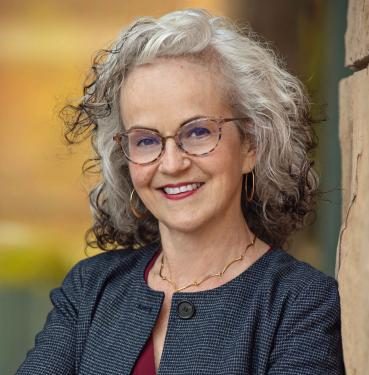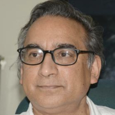Enhancing Teacher Preparedness for Mathematics Teaching and Learning
Conference Dates: 9th to 11th September 2022
Click here to watch the live conference proceedings and recorded sessions on MTA(India)’s YouTube channel
The MTA(I) annual conferences aim to provide a nationwide forum for mathematics teachers, mathematics educators, mathematicians, and individuals interested in mathematics education to come together and deliberate on various aspects of mathematics education. In the past three conferences, discussions have pertained to policy, curriculum, as well as pedagogic aspects at the school and college levels. The second and third annual conferences, both held in the virtual mode, focused on the challenges in mathematics education unleashed by the pandemic and deliberated on ways to meet these challenges.
As we continue to struggle with the uncertainties brought on by the pandemic, we need to reflect on several critical questions related to mathematics instruction and teacher preparedness for learning recovery. It would be naïve to assume that the resumption of face-to-face classes is sufficient to close the learning gap caused by the pandemic. Undeniably, a higher level of engagement is expected from students now, and it would be unrealistic not to scaffold this journey for teachers as well as students. The conference will address the following themes:
Theme 1: Scaffolding learning recovery in face-to-face mathematics classes
As we move from online to offline teaching-learning, we are entering a recovery mode, where teachers and students are figuring out coping mechanisms for higher levels of engagement. Hence, we deliberate on the following questions: How do we help students and teachers cope with the challenges of offline classes after a long period in online mode? How do we envision mathematics classrooms in the near future? What kind of resources will teachers need to ensure equitable access for learners? What is the role of digital technology as we go back to offline instruction, and how do we assess its efficacy?
Theme 2: Mathematical knowledge for teaching and teacher preparation.
Much of the practice of teaching mathematics and how students develop the fundamental concepts depends on teachers’ conceptual and pedagogical knowledge. A core infrastructural element of effective mathematics teaching is teacher knowledge. This brings us to questions: What is the nature of mathematical and pedagogical knowledge that the teacher must be equipped with in times to come? How can teacher preparedness be enhanced with a focus on developing learners’ mathematical thinking?
Theme 3: Mathematics and computational thinking.
Computational Thinking (CT) has been identified as one of the key abilities to be acquired by children during their school years. While CT encompasses a broad skill set applicable across contexts and domains, it is also intimately connected with mathematical thinking (MT). Further, mathematics as a core school subject becomes a natural choice for integration of CT. This posits the question: How can this integration take place? What kind of tasks should be designed which allow students to explore concepts, develop and employ CT practices and also foster MT at the same time?
Theme 4: Mathematics laboratory activities: Opportunity for Inquiry-based learning
One of the primary drawbacks of our present curriculum is the lack of opportunities for explorations and mathematical modelling activities. Such activities have immense pedagogical affordances as they familiarise students with mathematical content and highlight mathematics’s relevance as a discipline. Setting up mathematics labs, both at school and undergraduate levels, where students engage in projects and meaningful explorations will be a topic of discussion.
KEYNOTE ADDRESSES

Speaker: Deborah Lowenberg Ball
University of Michigan, USA
THE WORK OF TEACHING AND THE CHALLENGE OF TEACHER EDUCATION
Biosketch: Deborah Loewenberg Ball is the William H. Payne Collegiate Professor of education at the University of Michigan, an Arthur F. Thurnau Professor, a research professor in the Institute for Social Research, and the director of TeachingWorks. She taught elementary school for over 15 years and continues teaching children every summer. Ball’s research focuses on the practice of teaching, using elementary mathematics as a critical context for investigating the challenges of building relationships with children and helping children develop agency and understanding, and on leveraging the power of teaching to disrupt racism, marginalization, and inequity. Ball is an expert on teacher education, and her current work centres on ways to improve the quality of beginning teaching to advance justice. Ball has authored more than 150 publications, and her research has been recognized with several awards and honours. She served as president of the American Educational Research Association from 2017 to 2018, as a member of the National Science Board from 2013 to 2018, and as dean of the University of Michigan School of Education from 2005 to 2016.

Speaker: M. Ram Murty
Queen’s University, Canada
BRAIN NETWORKS AND GRAPH THEORY
Abstract: The last two decades have witnessed a new theme in neuroscience where neural assemblies in the brain are visualized as a network. They are mathematically conceptualized as a directed graph with the nodes being either neurons or regions of the brain and the edge connectivity matrix representing communication pathways between them. This visualization has proved remarkably useful in both localization and distribution of neuronal signal generation and transmission within the brain when studied with tools such as neuroimaging and electroencephalography.
In recent joint work with neuroscientist A.N. Prasad, we have introduced the Markov matrix P (different from the adjacency matrix) of the brain network and related the spectral theory of the matrix P to the functional connectivity of this network. In this way, we have given a method to identify “brain hubs” that are often implicated in various brain disorders such as epilepsy. This talk will give an introduction to this new and exciting application of graph theory to neuroscience and is targeted at a general mathematical audience.No deep knowledge of graph theory or neuroscience will be assumed.
Biosketch: M Ram Murty is an Indo-Canadian mathematician at Queen’s University, where he holds a Queen’s Research Chair in mathematics. He received his PhD in 1980 from the Massachusetts Institute of Technology and was a faculty member at McGill’s University, Montreal, from 1982 to 1996, prior to joining Queen’s University. Ram Murty is a number theorist who works on modular forms, elliptic curves and sieve theory. He is the author of 12 textbooks and research monographs in mathematics and one on Indian Philosophy. Murty received the Coxeter-James Prize in 1988. He was elected a Fellow of the Royal Society of Canada in 1990, was elected to the Indian National Science Academy (INSA) in 2008 and became a fellow of the American Mathematical Society in 2012.
Speaker: Weng Kin Ho
National Institute of Education, Nanyang Technological University, Singapore
COMPUTATION AS A BIG IDEA IN MATHEMATICS
Abstract: Randall Charles defines a Big Idea in Mathematics as “a statement of an idea central to the learning of mathematics, one that links numerous mathematical understandings into a coherent whole”. Therein, Charles listed a total of 21 Big Ideas – acknowledging the impossibility that all mathematicians and mathematics educators can agree on these – with the hope that they can be a starting point to initiate conversations. In this talk, we propose that ‘Computation’ can be added to this list of big ideas in mathematics and give compelling reasons to support our proposal. Additionally, we describe some implications of such inclusion with particular emphasis on teaching and learning of mathematics in schools.
Biosketch: Weng Kin Ho received his PhD in Computer Science from The University of Birmingham (UK) in 2006. His doctoral thesis proposed an operational domain theory for sequential, functional programming languages. His research interests include domain theory, general topology, programming language semantics, exact real arithmetic, category theory, algebra, real analysis and applications of topology in computation theory. Notably, he solved the open problem that questions the existence of a purely operationally-based proof for the well-known minimal invariance theorem of nested recursive types in Fixed Point Calculus and disproved the famous Ho-Zhao conjecture. He also has a keen interest in mathematics education, particularly in the area of computational thinking, use of technology in mathematics education, video technology and problem-solving. He has recently published in several education journals on leveraging computational thinking in teaching and learning mathematics.
Panel discussion on
Recovery and Resumption of Mathematics Learning in a Post- Pandemic Classroom
The absence of the offline classroom due to the pandemic and the resulting lockdown affected teaching-learning adversely during the last two years (March 2022 to February 2022). As we move back to the offline classroom, both students and teachers seem to be struggling , not only to recover from the learning loss during the lockdown period, but also in resuming the vibrant interactive learning in the classroom. The pandemic did not just cause a loss in content coverage, it has perhaps had a serious impact on students’ ability to negotiate a regular classroom. In this session, we aim to deliberate on the following issues:
- Challenges of offline classes after a long period in online mode
- Effective mechanisms that will help students and teachers cope with the challenges
- Resources that will help the teachers to ensure equitable access for learners
- Role of digital technology as we resume offline instruction
Panel discussion on
Change in the Education Policy Landscape
The 2020 annual conference of the MTA(I) included a panel discussion on the then recently-released National Education Policy and its implications for mathematics education at both school and university levels. In the two years since then, several initiatives based on NEP have been implemented or drafted in detail, such as the Academic Bank of Credit, the Four Year Undergraduate Programme, the Higher Education Qualifications Framework and the Common University Entrance Test. In 2022, we aim to take stock of how these developments impact teachers and teaching, in general as well as specifically for mathematics, in school and in university.
Registration
Interested participants may register for the conference by clicking on the following link: https://forms.gle/Bq9WjeRFTFxZhFyB9
There is no registration fee. The last date for registration is 6th September 2022.
Important dates
- The first announcement of the conference and call for abstracts: 15th July 2022
- Final extended deadline for registration (preference for members): 6th September 2022
- Last date of submission of abstracts:
10th20th August 2022is now over. - Notification of acceptance of abstract: 25th August 2022
Programme Committee
- Amber Habib (Shiv Nadar University, Delhi)
- Bhaba Kumar Sarma (IIT Guwahati)
- Geetha Venkataraman (Dr. B. R. Ambedkar University, Delhi)
- Jonaki Ghosh, Co-chair (Lady Shri Ram College for Women, University of Delhi)
- Jyoti Sethi (Mathematics Teacher, Delhi)
- K. Subramaniam (HBCSE, Mumbai)
- R. Ramanujam ( IMSc Chennai (Retd.) & Azim Premji University (Visiting))
- Shweta Naik (HBCSE, Mumbai)
- Sneha Titus, Co-chair (Azim Premji University, Bengaluru)
Local Organising Committee
- Anil Sankhwar (HBCSE, Mumbai)
- Ashish Singh (HBCSE, Mumbai)
- Jonaki Ghosh (Lady Shri Ram College for Women, University of Delhi)
- K. Subramaniam (HBCSE, Mumbai)
- Manoj Nair (HBCSE, Mumbai)
- Saurabh Thakur (Chair) (HBCSE, Mumbai)
- Shweta Naik (HBCSE, Mumbai)
- Sneha Titus (Azim Premji University, Bengaluru)
Conference Schedule
| Day 1: Friday, 9th September 2022 | |
|---|---|
05:00 pm – 05:20 pm
Inaugural sessionYouTube |
Welcome address and opening remarksR. Ramanujam |
Introduction to the theme of the conferenceSneha Titus and Jonaki B. Ghosh |
|
05:30 pm – 07:00 pm
Keynote Address IYouTube |
The work of teaching and the challenge of teacher educationDeborah Loewenberg Ball Session chair: |
| Day 2: Saturday, 10th September 2022 | |
10:00 am – 11:30 pm
Keynote Address IIYouTube |
Computation as a Big Idea in MathematicsWeng Kin Ho Session chair: |
12:00 pm – 01:30 pm
Panel Discussion I
|
Recovery and Resumption of Mathematics Learning in a Post- Pandemic ClassroomPanelists: Session chairs: |
03:30 pm – 05:30 pm
Invited PresentationsYouTube |
Mathematics Laboratory activities: Opportunity for inquiry based learningSwati Sircar (Azim Premji University) Session chairs: |
| 06:00 pm – 07:30 pm
Keynote Address III |
Brain Networks and Graph TheoryM. Ram Murty Session chair: |
| Day 3: Sunday, 11th September 2022 | |
Paper presentations
|
Session 1Session chair: |
Session 2Session chair: |
|
Session 3Session chair: |
|
12:30 pm – 2:00 pm
MTA General Body Meeting |
This session is for MTA members only
To be presided by R. Ramanujam |
3:00 pm – 4:30 pm
Panel Discussion II
|
Change in the Education Policy LandscapePanelists: Session chairs: |
5:00 pm – 6:00 pm
Valedictory Session |
Cultural program
|

